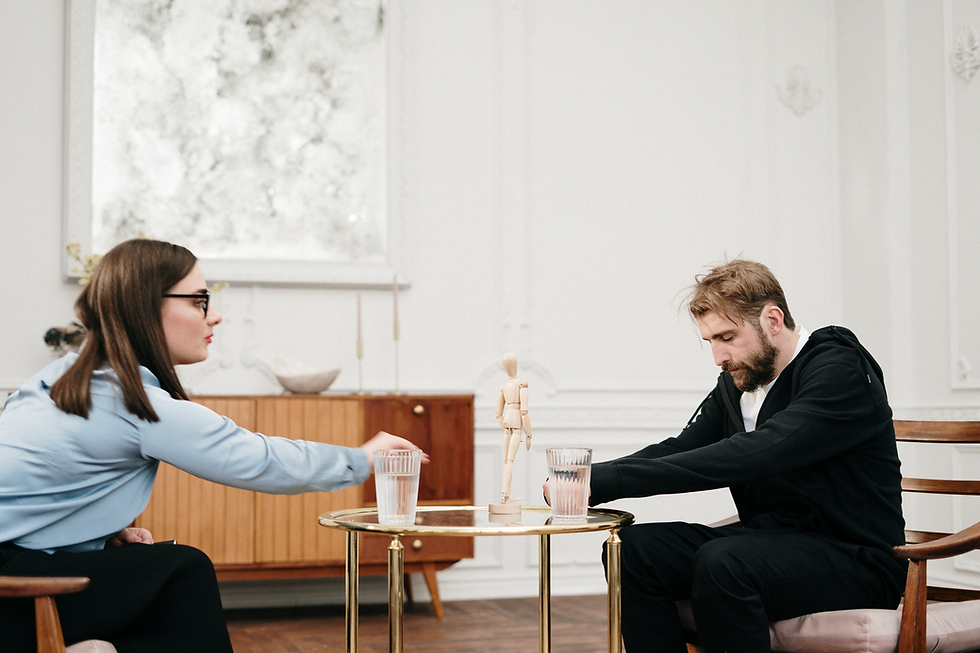Got to Have it: Pressured Parents of Trend-Chasing Children
- Molly Hardwick

- Oct 14, 2021
- 3 min read

Children are chasing trends. Whether it’s a piece they’ve seen on their friends or on TV, they want it next. But what are the mental health implications of constantly wanting fashion beyond your means? A great deal of pressure is put on parents to spend lots of money on their child's clothing. It's a constant competition with other children and parents. How long this can carry on, as low income families particularly battle their expenses to help their child feel included in school?
Trends, they've got to have them
You’re fourteen. You’re at school. You’re waiting at the gate when your best friend approaches in a new coat. A designer coat, you’ve never seen it before. You compliment her on the coat, of course, but later you’re looking online to try to grab one for yourself.
This probably seems familiar to some extent. If it doesn’t resonate with you, though, it definitely resonates with today’s youth. Children are victims of advertising. They want to feel a sense of inclusion, so fall into the trap of keeping up with every fashion trend. This means often opting for the same pieces their friends have.
Struggling to find time for childhood
In a UNICEF report, UK children were more likely than those in Sweden and Spain to be ‘left to their own devices'. Therefore, maturing at a much quicker rate. Of course, the issue then is that children feel older than they are. They begin to compare themselves to adults, which is particularly toxic in the age of social media. Suddenly, an influencer wearing a Moncler jacket for a ski-trip leads to young people asking their parents for the piece. They are conditioned to believe it's both an appropriate and realistic wear for school.
Let them be children
Ultimately, young people don’t have much concept of the cost of these fashion pieces, and simply want to fit in. Woodchurch High School in Merseyside made the decision to ban brands like Canada Goose, Moncler and Pyrenex, as those designer brands were notoriously sought after by students as young as eleven.
Fashion is a huge sense of identity, but it's unfair that young people suffer from chasing trends beyond their depth. The children who didn’t have designer branded coats, which can cost up to £1,400, felt “stigmatised, left out, inadequate” according to the Headteacher of the school.
The pressure's on, parents
The fact young people won’t enjoy their youth is tragic. But parents' mental health is also a massive factor in chasing these luxury price tags. As teenagers request designer brands for their birthday, parents are left with pressure to please.
School is a tough place for popularity. Understanding this, parents feel obliged to match the other parents’ efforts in making their child comfortable.
Parents in the UK, especially but not exclusively those in low-income families, said they felt "tremendous pressure from society to buy material goods for their children".
Stopping this constant competition
These constant competitions are having an awful impact on both children and parents’ mental health. To associate fashion with self-worth, particularly luxury fashion, is disastrous even for the families who can afford it.
The only way out of this is a collective effort to contextualise fashion for children. Because they have easy access to media, the lines are blurred between fashion intended for adults and children. They lack understanding of just how much £1,400 for a coat is, and the economic sacrifice parents need to make to afford it.
As young people see designer brands on adults, they have little context. They don't understand adults save and invest in such pieces. Therefore, rather than shutting the child down immediately if they request a luxury piece, parents can put things into perspective so children understand why a particular trend isn’t achievable.
But it is a collective effort, and many more schools should consider following suit in banning particular designer brands. While children are still in a constant cycle of chasing trends and imitating their age mates, parents will continue to be impacted. Low-income families, particularly, are going to find that pressure heavy on their mental health.



Comments